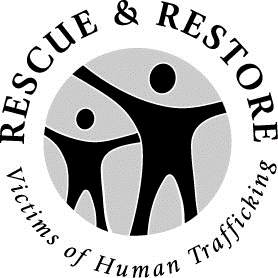
(1)“Sex trafficking in which a commercial sex act is induced by force, fraud, or coercion, or in which the person induced to perform such act has not attained 18 years of age;” or
(2) “[T]he recruitment, harboring, transportation, provision, or obtaining of a person for labor or services, through the use of force, fraud, or coercion for the purpose of subjection to involuntary servitude, peonage, debt bondage, or slavery.”
As a survivors of human trafficking in the United States, you can have access to various kinds of assistance to help you get back on your feet.
Some non-profit organizations have free legal services which can help you wit your case, if you still have an ongoing case. Otherwise, you can contact your county office for public assistance. T-Visa recipients enjoy the same privileges as a refugee. If you have a U-Visa non-immigrant, however, you might not be able to get all the public benefits, you will still be able to get some help and resources that will elevate you to the next step in your life.
The Lutheran Social Service provides the following assistance for victims and survivors of human trafficking:
- Pro bono legal advice and representation, including assistance to non citizen survivors of human trafficking applying for a T Visa.
- Comprehensive case management services
- Employment services
- English as a Second Language classes and educational programs
- Referrals to community-based organizations
The catholic Charities also provides various kinds of assistance to survivors through its Outreach and Support to Special Immigration Population (OSSIP) program. The organization stated that “OSSIP provides intensive case management and legal services to survivors of human trafficking, to aid survivors in successfully navigating all aspects of the U.S. legal and social services system, with the ultimate goal of self-sufficiency and self-empowerment for the survivor.”
The assistance survivors could receive through the organization include:
- Immigration legal representation
- Assistance with safe and comfortable housing
- Assistance with food, clothing and other necessities
- Assistance with medical services
- Assistance with mental health services
- Assistance with obtaining non-exploitative employment
- Assistance with interpretation services
- Client advocacy before law enforcement officers
Both T and U visa holders can work legally in the United States, so contact the Workforce center in your county to help you apply for jobs. In fact, the center helps with resources for how to write a resume, job fairs and so on to help your to be gainfully employed as you adjust to your new life.
Resources:
Lutheran Social Services: http://www.lssne.org/Legal-Help-For-Survivors-of-Human-Trafficking.aspx
Catholic Charities: http://www.catholiccharitiesoregon.org/default.asp
US Immigration and Citizenship Service: http://www.uscis.gov/portal/site/uscis/menuitem.eb1d4c2a3e5b9ac89243c6a7543f6d1a/?vgnextoid=02ed3e4d77d73210VgnVCM100000082ca60aRCRD&vgnextchannel=02ed3e4d77d73210VgnVCM100000082ca60aRCRD
